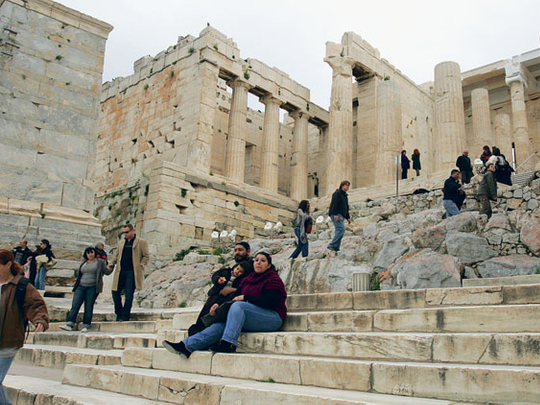
Athens: Greece in 2013 registered a budget surplus of more than €1.5 billion ($2.05 billion), exceeding requirements for additional debt aid, Prime Minister Antonis Samaras said on Sunday.
“We have created a primary surplus in 2013 when the target was for 2014... it is over €1.5 billion,” Samaras told To Vima weekly in an interview.
“Three times more than we originally calculated,” he said.
A month earlier, Samaras had placed the primary surplus — a budget surplus not counting debt servicing costs — at around €500 million.
It is the first time in over a decade that the country has registered a primary surplus.
Greece hopes to utilise these savings in order to obtain assistance with its enormous debt from its international creditors later this year.
Samaras has pledged to give most of the surplus back to those worst affected by four years of austerity cuts.
Some European officials, however, have expressed scepticism over the scope of Greece’s surplus claims.
EU data agency Eurostat is expected to formally announce the size of the surplus in April.
Following a Eurogroup decision in November, Greece can hope for help in reducing its massive debt if it achieves a primary surplus.
The Greek economy is forecast to exit a six-year recession later this year, and the country is also expected to make its first medium-term debt sale since 2010, raising €1.5-2.0 billion in five-year bonds in the second half of the year.
However, Samaras faces risky local elections in May in which his conservative party’s main rivals, the anti-austerity leftist party Syriza, are poised to score major gains.
The Greek central bank has warned that electoral bickering could hurt the economic recovery.
“The future course of the economy is subject to strong uncertainty,” Bank of Greece chief George Provopoulos told a parliament committee last month.
Samaras has ruled out the prospect of also holding early national elections before his term expires in 2016, a denial he repeated on Sunday.
However, it looks likely that early ballots will be required in 2015 to enable parliament to elect a new president.









